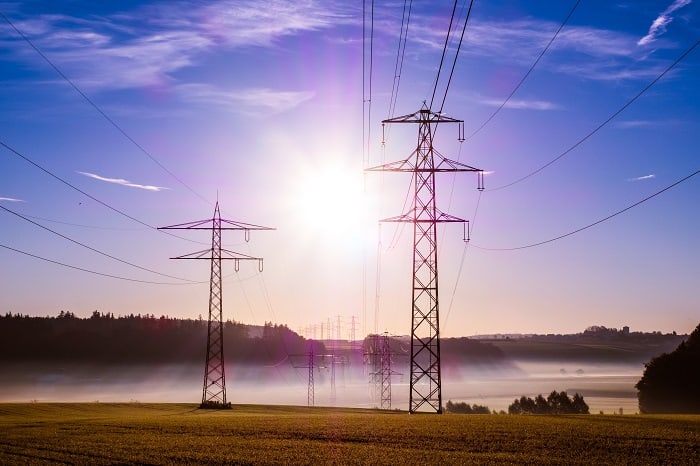If public utilities are regulated, how could Sustainability be a real competitive frontier? And, isn’t Environmental, Social and Governance (ESG) / Sustainability just a cost these companies must endure — much like taxes?
One might think that the answer to these questions is “yes,” however …
Companies competing for capital could benefit by their ESG/Sustainability efforts for real ROI reward
As the ESG / Sustainability field continues to evolve into mainstream business and communications practices, it is becoming noticeable that some utility sector leaders have been quietly bridging their company’s sustainability program successes into their investor relations (IR) communications strategy.
Takeaway
The maturing ESG / Sustainability field appears to have had a profound impact to-date on the utilities sector — electricity, gas and water — at large and on individual company competitive behavior.
Findings
When I conducted my first research using AlphaSense a year ago, the utilities sector had the greatest volume of ESG / Sustainability investor disclosure. I recently revisited this observation to see what another AlphaSense search might find. I looked for Sustainability-related references by U.S. publicly traded utilities, in a limited search of just their annual proxy statements and IR presentations over the past year. The results:
- 101 publicly traded U.S. utility companies could be found in AlphaSense
- Virtually every one of the companies referenced ESG / Sustainability (or related terminology) in their most recent proxy statement
- In aggregate, 29% of these companies also referenced ESG / Sustainability (or related terminology) in their various IR presentations. The chart below shows the breakdown. Leading the way — water utilities (45%), followed by electric utilities (38%)
- A breakdown of the various types of IR presentations where ESG / Sustainability references were identified is shown in the table below
Types of IR Presentations
| Annual Meeting |
Investor Conferences |
Investor Meetings |
Analyst Days |
Quarterly Earnings Call |
Other | |
| Gas Utilities | x | |||||
| Independent P&RE* | x | x | x | x | ||
| Electric Utilities | x | x | x | x | ||
| Water Utilities | x | x | x | x | x | |
| Multi-Utilities | x | x | x | x | x |
*Independent Power & Renewable Energy Producers
Competitive positioning
It’s not hard to see where this is going. We could fill the walls of a conference room brainstorming myriad scenarios in which Sustainability is rapidly presenting itself as a real competitive frontier for the utilities sector. I will leave you with several macro-level considerations:
- Accelerating pressure to de-carbonize is coming from multiple external stakeholder groups, including investors who are choosing to engage instead of to divest their holdings in individual companies.[2]Balancing the timing and influence of these external pressures — versus practical migration of power generation assets to lower carbon impact — could affect relative competitive financial performance across sub-sector peers. For instance:
“Stranded assets will become an unprecedented problem for sectors relying on fossil fuels.”
- How individual utility companies choose to modify and invest in their energy-producing assets and feedstock supply, in tension with external stakeholder bias, will matter at the top, middle and bottom lines of their financial performance. Proactive IR communications will be important in helping navigate each company’s journey through it all.
“The results are very consistent: Firms making investments on material ESG issues outperform their peers in the future in terms of risk-adjusted stock price performance, sales growth and profitability margin growth … At the same time, they need to be able to inform their investors how they are performing on those issues by communicating credible key performance indicators. In turn, investors need themselves to analyze what are the important ESG issues for the companies in their portfolio and manage hidden risks. Not all social and environmental initiatives are created equal.” – George Serafeim, Harvard Business School, April 14, 2015
Results of the 2016 presidential election will matter in terms of what, why, where and how each company in the utilities sector will need to adapt its Sustainability strategy and positioning.
“Energy has largely been a second-tier issue in this contest, although the divergence in the candidates’ views on this vital subject is stark … Stepping back from the details, and at the risk of grossly oversimplifying some complex and thorny issues, the key difference I see between the two candidates in this area is that Mrs. Clinton’s energy policies seem designed mainly to serve environmental goals, while Mr. Trump’s energy policies seem aimed at mainly economic goals … the choice here looks as binary as on many other issues this year. Just don’t interpret that conclusion … as an endorsement of either candidate.” – Geoffrey Styles, Energy Outlook, November 3, 2016
Lastly, we shouldn’t forget about human capital impacts of ESG / Sustainability in talent recruitment and retention. As pointed out by Ceres in its “Roadmap for Sustainability, Electric and Gas Utilities:”
“And all of these challenges require attention at a time when these companies face a wave of near-term personnel loss — more than 50% of the workforce could retire over the next decade, by many estimates — and will need to recruit and train a new, skilled workforce.”
Human capital impacts of ESG / Sustainability are a big subject not just for the utilities sector, but for a host of other sectors. I will hope to dedicate a future blog posts to this subject.
Wrapping-up
It would appear that utility companies overall may be under-utilizing their IR programs, which should be a key strategic partner in the balance of managing ESG / Sustainability risk and return trade-offs in the immediate future.
Approach
I focused my AlphaSense research on the utilities sector, following two search paths.
First, filtering for proxies over the last 12 months, eliminating duplicates, then counting the number of U.S. companies; then I searched within this group for key words (see chart above).
After reviewing those results, I then searched the utilities sector for company presentations that included the word “Sustainability” over the last 12 months and searched within this group for the various types of IR presentations. In both searches, I used the AlphaSense quick-scan feature to count only those companies where the key word usage was within ESG / Sustainability context.
Pamela Styles is principal of Next Level Investor Relations LLC, an Investor Relations consultancy with dual IR and ESG/Sustainability specialties.




